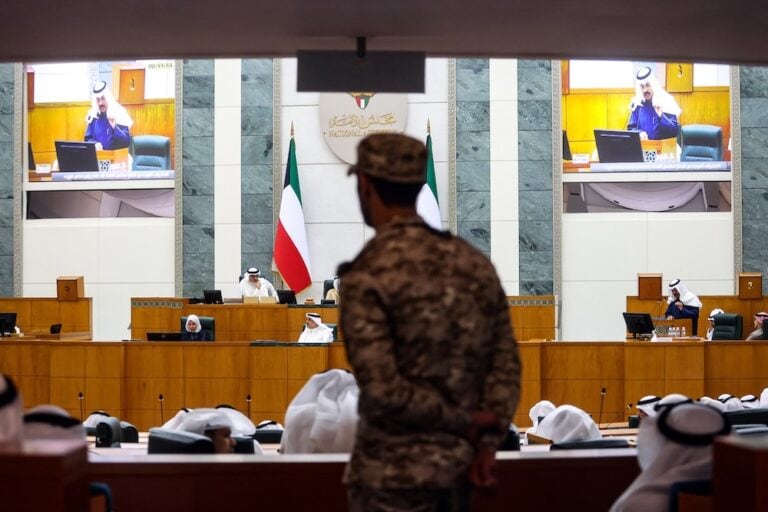The latest decision to close media outlets came only days after Al Jazeera's office was ordered closed, following broadcast of disputed material.
(ANHRI/IFEX) – Cairo, 9 January 2011 – The Arabic Network for Human Rights Information today denounced an arbitrary decision by the Kuwaiti Ministry of Commerce, on 5 January, to close Mubasher satellite channel and “Al-Mustaqbal” newspaper, following a request by the Ministry of Information. The satellite channel and newspaper are owned by Sheikh Fahd Salem al Ali.
ANHRI also condemned a 6 January decision to close the offices of “Al-Dar” newspaper, owned by businessman Mahmoud Haidar, for allegedly violating its licensing terms.
All three media outlets have since been forced to resume operations from offices outside the free zone.
Mubasher channel had earlier aired a number of live broadcasts of demonstrations over recent government policies, as well as footage of MPs questioning the prime minister about the tense political situation in the country. Following the broadcasts, a closure decision was issued by the information ministry for the channel and for “Al-Mustaqbal” newspaper, citing alleged “irregularities”. Although the irregularities referred to concerned only one programme, “Haqiqa”, the entire channel, as well as “Al-Mustaqbal” newspaper (owned by the same person) were cited in the closure order – an apparent attempt to silence the channel for daring to broadcast criticism of the prime minister.
The following day, a closure order was issued for “Al-Dar” newspaper under similar circumstances. The authorities gave the news team five hours to evacuate the newspaper’s office in the free zone, which led to the suspension of the paper’s operations until another office was found.
“Restrictions on the media and press freedoms by the Kuwaiti government are on the rise,” said ANHRI. “The closure orders for the satellite channels and two newspapers come only days after the order to close Al Jazeera’s office in Kuwait, following broadcast of disputed material. The Kuwaiti authorities are used to fabricating charges for media outlets to justify closure of their offices and cover the fact they are being punished for their critical reporting.”
ANHRI notes however that issuing closure notices through the Ministry of Commerce rather than the Ministry of Information is a new tact, likely used to persuade the public and the international community that the closures were the result of commercial violations, rather than the consequence of critical reporting.


